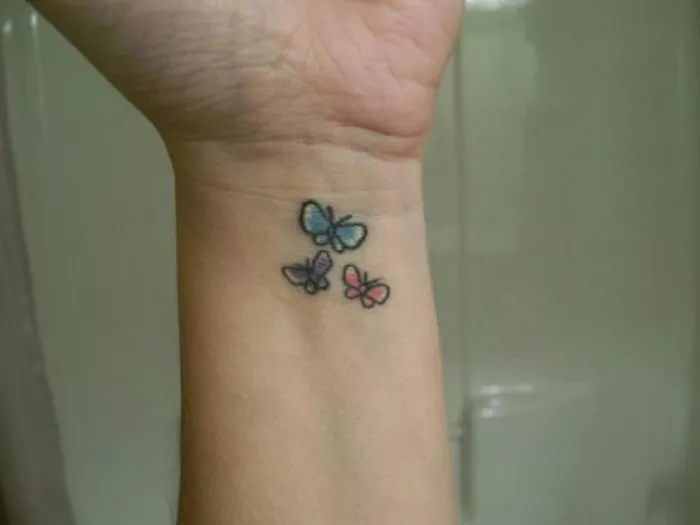In recent years, tattoos have become increasingly prevalent in society, shedding their taboo status and emerging as a form of self-expression and art. While tattoos were once associated with rebellion or subculture, they are now embraced by individuals across various demographics, professions, and social circles. Despite this shift in perception, questions linger regarding the professional acceptability of tattoos, particularly those situated on visible areas like the wrists. This article aims to dissect the notion of wrist tattoos‘ professionalism, debunk common myths surrounding them, and delve into the evolving landscape of workplace attitudes towards body art.
Understanding the Stigma: Origins and Evolution
The stigma attached to visible tattoos, including those on the wrists, can be traced back to historical and cultural contexts. Traditional norms dictated that individuals adorned with tattoos were often perceived as outsiders, rebels, or individuals associated with fringe groups. Tattoos were commonly linked with sailors, bikers, and members of the military, contributing to their association with nonconformity and deviance.
However, societal perceptions have undergone a profound transformation in recent decades. As tattoos became more mainstream, the stereotype of the tattooed individual shifted from delinquent to artist, from rebel to professional. Today, tattoos are celebrated as forms of personal expression, with individuals from all walks of life proudly displaying their ink.
Dispelling the Myths: Addressing Common Misconceptions
Despite the growing acceptance of tattoos in society, misconceptions persist regarding their impact on professionalism, particularly in the workplace. Let’s examine and debunk some of these myths:
Myth: Wrist tattoos are inherently unprofessional.
Reality: The professionalism of a tattoo is subjective and context-dependent. While some conservative industries may still frown upon visible tattoos, many workplaces have relaxed their dress code policies, embracing diversity and individuality. Moreover, the significance of professionalism extends beyond physical appearance to include competence, conduct, and work ethic.
Myth: Wrist tattoos hinder career advancement.
Reality: Career advancement is influenced by various factors, including skills, experience, and performance. While some employers may harbor biases against tattoos, many others prioritize talent and merit. In progressive industries such as tech, creative arts, and entertainment, tattoos are often celebrated as symbols of creativity and authenticity.
Myth: Wrist tattoos signal irresponsibility or lack of judgment.
Reality: Tattoos are personal choices that do not inherently reflect one’s character or competence. Assuming that an individual’s tattoo reflects their professionalism is akin to judging a book by its cover. It’s essential to evaluate employees based on their actions, contributions, and behavior rather than superficial attributes.
Myth: Wrist tattoos are permanent regrets.
Reality: While tattoos are indeed permanent, the notion of regret is subjective. Many individuals cherish their tattoos as meaningful symbols or reminders of significant life experiences. Additionally, advancements in tattoo removal technology offer individuals the option to revise or remove tattoos if desired, mitigating the fear of lifelong regret.
See Also: Which Tattoo is Lucky for Gemini: A Beginner’s Guide
Navigating Workplace Acceptance: Trends and Considerations
As societal attitudes towards tattoos continue to evolve, so too do workplace policies and practices. While some industries maintain conservative dress codes that prohibit visible tattoos, others have adopted more inclusive approaches that accommodate diverse forms of self-expression. Here are some trends and considerations regarding workplace acceptance of wrist tattoos:
Industry-specific norms: Certain industries, such as finance, law, and government, traditionally uphold conservative standards of professionalism. In such environments, visible tattoos, including those on the wrists, may be subject to scrutiny or restriction. However, even within these sectors, attitudes are shifting as younger generations enter the workforce and challenge traditional norms.
Company culture: Workplace attitudes towards tattoos often reflect the values and culture of individual companies. Progressive organizations that prioritize diversity, creativity, and innovation are more likely to embrace employees’ individuality, including visible tattoos. Companies that value authenticity and inclusivity recognize that enforcing strict dress codes can stifle employee morale and hinder recruitment efforts.
Policy flexibility: Many companies have adopted flexible dress code policies that allow employees to express themselves while maintaining a professional appearance. Such policies may include guidelines on tattoo visibility, permitting tattoos that can be covered by clothing or discreetly displayed. By offering flexibility, employers demonstrate respect for employees’ autonomy and recognize the importance of fostering a positive work environment.
Leadership influence: The attitudes of organizational leaders play a pivotal role in shaping workplace culture and acceptance of tattoos. Leaders who embrace diversity and champion inclusivity set the tone for their teams, encouraging open-mindedness and acceptance of individuals with tattoos. By leading by example, executives can cultivate a culture of respect and appreciation for employees’ diverse backgrounds and identities.
Conclusion
In conclusion, the question of whether wrist tattoos are unprofessional is not a straightforward one. While societal norms and workplace policies may vary, the overarching trend is towards greater acceptance of tattoos as valid forms of self-expression. Rather than adhering to outdated stereotypes, employers and individuals alike should prioritize competence, character, and mutual respect in evaluating professionalism.
As we continue to navigate the complexities of modern work culture, it’s essential to recognize that professionalism encompasses far more than outward appearance. True professionalism is demonstrated through integrity, professionalism, and a commitment to excellence, regardless of whether one bears tattoos on their wrists or not. By fostering environments that value diversity and authenticity, we can create workplaces where individuals feel empowered to be their true selves, tattoos and all.

